Empowering First Nations Australian, Māori and Pasifika Community-Led Change in Social & Emotional Wellbeing
Monday 24 - Tuesday 25 October 2022, Adelaide Oval, SA
Niina Marni (Welcome)
Warraparna Kaurna (Let Kaurna be Spoken)
As this panpapanpalya (conference) is being held on local Kaurna land for 2022, we have honoured their warra (language) throughout this website.
Pangkarra ia, Kaurnaku yarta, maiyarta. Kaurna pangkarra Crystal Brookunungku kauwantila, Cape Jervisana patpangka, karnurna paintyila marrikurlu (This is Kaurna country, good country. Kaurna country extends from Crystal Brook in the north to Cape Jervis in the south and to the east of the hills).
Ngadlu padlunthi mukapanthi warra Kaurnaku (we want to remember the Kaurna language).
Our vision is simple: to provide a platform for First Nations Australian, Māori and Pasifika people to come together, collaborate, ngutu-atpanthi (teach), learn, create, and lead programs and services for greater social and emotional wellbeing.
Ngaityu yungantalya (thank you) for your support and involvement. United, there will be a stronger yangadlitya (vision for the future) for all First Nations Australian, Māori and Pasifika people.
Meeting our Way for Health
The gap in health status between First Nations Australian, Māori and Pasifika peoples and non-Indigenous people continues to remain unacceptably wide. It has been identified as a human rights concern by United Nations committees and acknowledged as such by both Australian & New Zealand government bodies.
For change to happen we must shine a light on the key challenges in First Nations Australian, Māori and Pasifika communities and address the past and present issues contributing to inequities in mental health treatment and care.
We must stop and listen to our First Nations Australian, Māori and Pasifika peoples, and empower their solutions to ensure all individuals are living long health lives; strengthening the ability to engage in cultural practices and maintain connection or reconnect with their spirit.
It is our responsibility to genuinely and actively involve First Nations Australian, Māori and Pasifika peoples and their representative bodies in all aspects of addressing health and wellbeing needs.
Unite with community leaders at the 2022 Indigenous Wellbeing Conference to create the change you want to see.
He Waka Eke Noa (We Are All In This Together)
Our Vision
A holistic approach to social and emotional wellbeing, led by and for First Nations Australian, Māori and Pasifika community members in Australia & New Zealand.
Our Mission
To bring First Nations Australian, Māori and Pasifika leaders, mental health professionals and people with lived experience together to progress the wellbeing and mental health of their communities.
Keynote Speakers
Mark Kopua
Co-founder and Co-director of Te Kurahuna Ltd, Mahi a Atua
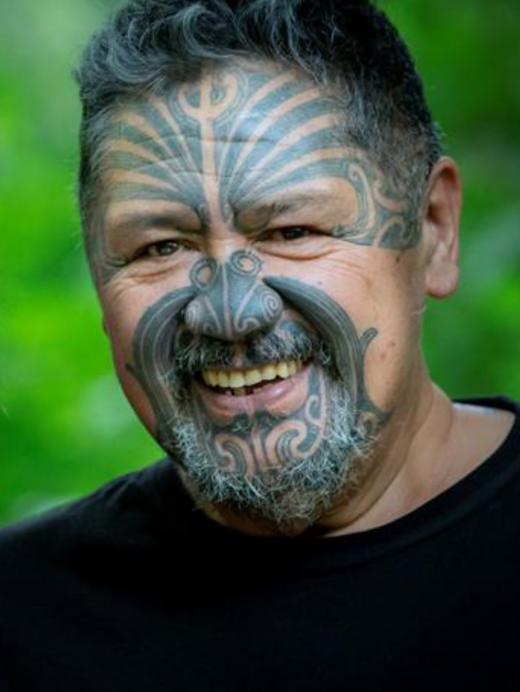
Mark Kopua
Co-founder and Co-director of Te Kurahuna Ltd, Mahi a AtuaMark was raised by his old people in Mangatuna and is considered an East Coast historian. Recognised as a Master Carver of seven Meeting Houses, Mark is one of the first wave of Moko artists who reinstated modern Moko over 30 years ago. Mark has trained several current Moko artists and Carvers and is still involved in the arts. He has been active in the Moko Ihorei repatriation work both Internationally and Domestically and employed to provenance traditional Māori Carvings. Mark has over 32 years regional (Tamararo) Kapa Haka judging, and has judged National Kapa Haka (Te Matatini) for 15 years. He first began his journey in mental health services in 2012 and is a confident facilitator in Therapeutic Wānanga and is celebrated as a skilled Storyteller and Keeper of ancient Māori knowledge and whakapapa. Together with his wife Dr Diana Kopua, Mark has created ‘Te Kurahuna’ - a whare wānanga (training institute) where practitioners learn indigenous knowledge in a unique and authentic way.
Diana Kopua
Co-founder and Co-director of Te Kurahuna Ltd, Mahi a Atua
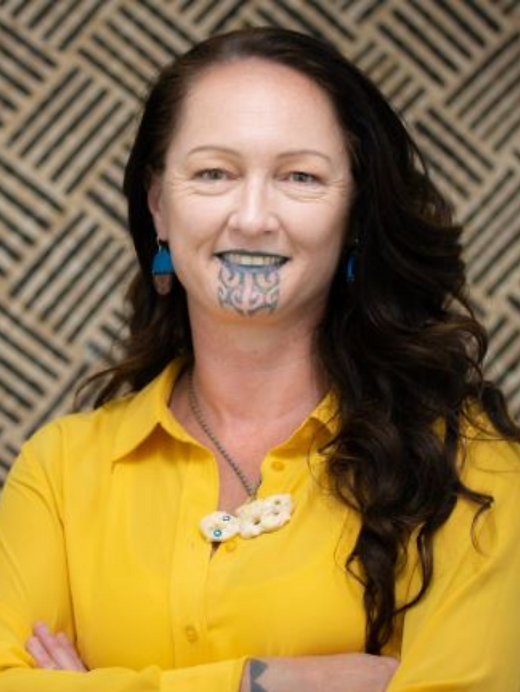
Diana Kopua
Co-founder and Co-director of Te Kurahuna Ltd, Mahi a AtuaDiana is a proud Ngāti Porou woman raised in Porirua under the mantle of Ngati Toa on the Marae of Takapūwāhia. She is a creative spirit with a talent for music.
After 11 years of Mental Health Nursing Diana embarked on a long 13 year journey to become a Consultant Psychiatrist specialising in Indigenous health.
In the mid 90's Diana created an approach that she called Mahi a Atua. Which has now become recognised as an innovative and successful Mātauranga Māori kaupapa that prioritises oranga whakapapa and creativity, with its trademark of pūrākau, reflection and feedback.
In 2010 Diana was awarded the prestigious Ngarimu VC Manakura Award. It is awarded to those who display characteristics of the 28 th Māori Battalion; strength of character, ambition, courage and original thought. Diana carried these characteristics to the Tairāwhiti in 2014 where she became the first Ngāti Porou psychiatrist.
In 2020, Diana was awarded the prestigious Dr Maarire Goodall award for her on going contribution to Māori Health. In the words of Professor David Tipene Leach, Chair of Te ORA. “Dr Di Kopua is a great example of the ‘doctor scientist and social justice champion’ that Maarire Goodall embodied”.
Dr Lynne Russell
Senior Research Fellow, Māori Health, Victoria University of Wellington
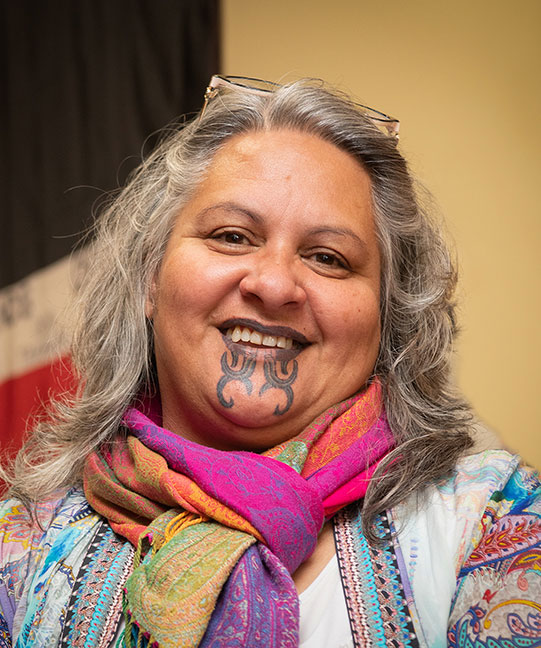
Dr Lynne Russell
Senior Research Fellow, Māori Health, Victoria University of WellingtonDr Lynne Russell works as a Senior Research Fellow - Maori Health with the Health Services Research Centre (HSRC) at Victoria University of Wellington.
Much of Lynne's professional and academic work has centred around the Indigenous knowledge and healing practices used in recovery from trauma associated with mental distress, suicide loss and self-harm. She describes herself as a writer, activist and public speaker stirred by cultural resilience, social justice, Indigenous and LGBTI rights, and the amplification of voices more readily silenced in society.
Rosemary Wanganeen
Founder, Healing Centre for Griefology
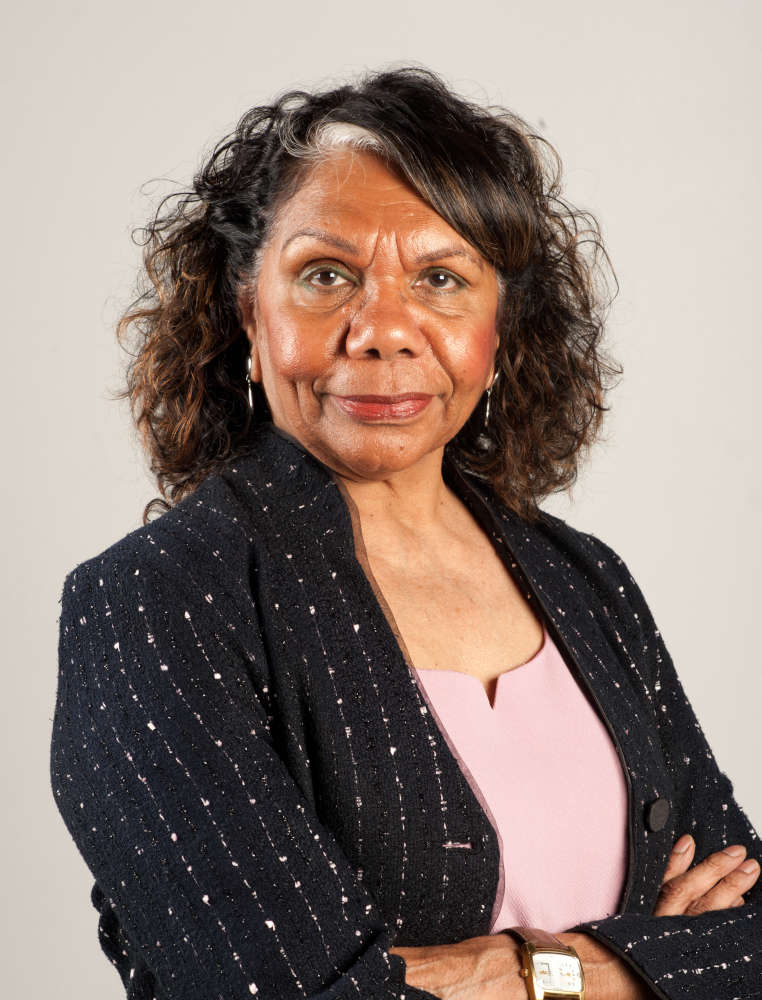
Rosemary Wanganeen
Founder, Healing Centre for GriefologyRosemary Kudnarto Wanganeen is a proud South Australian Aboriginal woman with ancestral links to Kaurna of the Adelaide Plains and Wirungu from the West Coast of SA. Combining her personal lived experiences with her professional experiences as an evidence-based loss and grief model, she established the Sacred Site Within Healing Centre in 1993 and in its strength, established the Australian Institute for Loss and Grief in 2005 and most recently the Healing Centre for Griefology 2021. With 35 years experience she’s designed a newfound disciple called Griefology and with her industry experience, a published and peer reviewed author she was accepted into the Master of Philosophy at Adelaide University. Today, Rosemary’s ultimate aspirations for Griefology is to develop a new-found sector.
Rod Jeffries
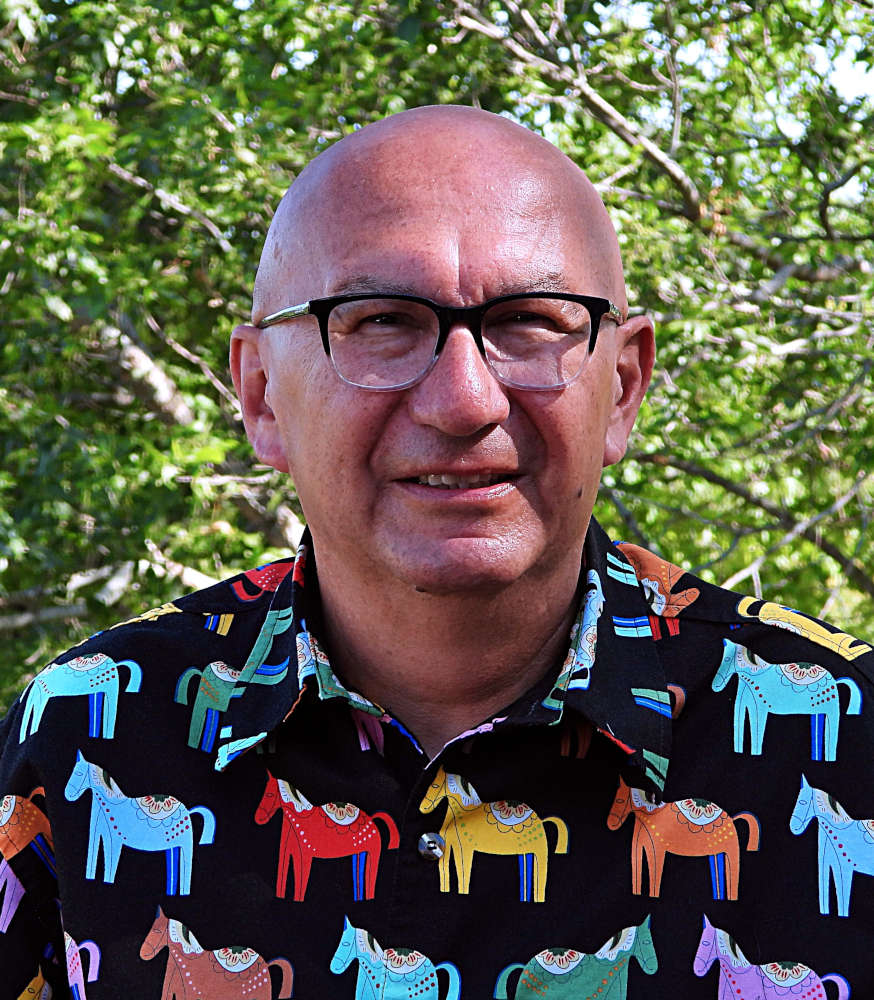
Rod Jeffries
Rod Jeffries is Wakenyahten (Turtle Clan) of the Kanyen’keha:ka Niwakitaro:ten (Mohawk) residing at home on the Kenhte:ke Nitewake:non (Tyendinaga Mohawk Territory, Ontario, Canada.) For the past 38 years, he has worked in the fields of substance abuse, healing, wellness and treatment as manager, workshop trainer/facilitator, program developer and evaluator. Rod is an international speaker/trainer having presented in Australia, New Zealand, USA, and Europe. In the past 27 years his efforts have focused on the development & delivery of programs and staff for working with survivors of trauma, cultural oppression, sexual abuse and residential/boarding schools. In recent years, Rod has become well known for his work on trauma, shame and lateral violence across Canada and in New Zealand.
He is the chairperson of the International Indigenous Council for Healing Our Spirit Worldwide. Rod’s involvement with HOSW began in 1991 prior to the First Gathering in Edmonton, Alberta in 1992. He remains involved today in the preparation for the next Gathering in Vancouver in 2023.
In recent years, Rod’s efforts have focused on addressing issues directly related to trauma, historic trauma, abandonment, shame & lateral violence through the utilization of our strengths, resilience, compassion and the cultural systems that sustained us for thousands of years. In the past ten years he has concentrated on developing trauma-based addictions programs to assist communities in their healing initiatives. He has recently developed facilitator training programs on lateral violence and healing trauma to share his messages and techniques for Indigenous people to rebuild those systems in today's context.
In addition, Rod continues with management development including healthy organizational environments, strategic planning, teamwork & teambuilding and operational plan development.
The foundation of all the training and development is our history and culture as Indigenous peoples, that in the past, has provided us with the values and beliefs to sustain our well-being.
Dean Bayliss
Healing Works Australia
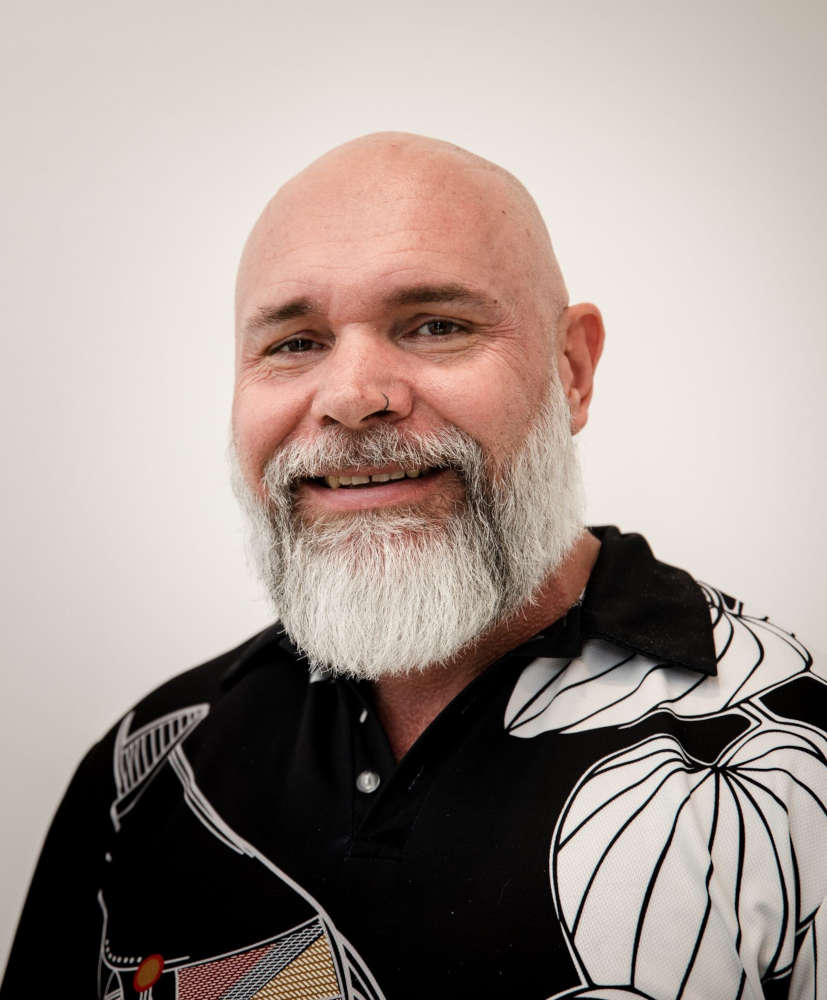
Dean Bayliss
Healing Works AustraliaDean Bayliss is a proud Kamilaroi man and is the CEO of Healing Works Australia. Dean has extensive experience within suicide prevention and postvention, including roles within The Way Back Suicide After Care Program, co-design, development and service delivery of the Aboriginal and Torres Strait Islander Suicide After Care Program and suicide prevention with community led emotional wellbeing and healing events. He also has significant experience in program co-design, strategic suicide intervention program development, implementation and delivery. Additionally, he has been a contributing member of multiple suicide prevention based networks and groups, including LifeSpan Newcastle. More recently, he has been sought out to provide cultural supervision for a NSW school based “Elevate and Empower leadership program” with the Aboriginal Education Officers through training, mentoring and supervision.
Dean’s personal and professional experiences have placed him in a unique position to provide culturally competent, sensitive and safe environments for Aboriginal and Torres Strait Islander Peoples who are at risk of suicide, or who would like to learn how to support someone who is at risk of suicide. Dean’s solid understanding of himself and his own lived experiences enables him to understand and assist others through a nurturing and empathic approach. This is critical when empowering communities. His background in training, development and business management compliments his abilities to lead others as a confident role model and mentor, along with his ability to relate well to others regardless of their background or circumstances.
Dean holds a strong commitment to building the capacity and resilience of individuals and communities regarding mental health, suicide prevention and healing. He values and respects cultural protocols and does not allow consultation and community engagement to be compromised as he believes they are fundamental for a tailored and sustainable approach for each individual community.
Dean is a Master ASIST and I-ASIST trainer and is also a safeTALK and safeYARN trainer – all of which are industry leading suicide intervention training programs developed by Livingworks Australia, whom Dean is proudly affiliated with. Dean is also a co-developer and facilitator of the Hope to Healing Workshop. He is also available for speaking engagements and has extensive experience as a keynote speaker and panellist member at conferences and symposiums throughout Australia. Dean is currently a National Network Member for the Black Dog Institute Aboriginal and Torres Strait Islander Lived Experience Centre, a National Advisory Member for the Ibobbly app for the Black Dog Institute, and a national Consortium Member on behalf of Healing Works Australia for I-ASIST.
Dean collaborates and has forged strong partnerships with Government, Non-Government and community groups with guidance, strong vision and accountability.
His key focus is building strong sustainable kinship through targeted support.
Sarah Decrea
Practice Manager Family Led Decision Making
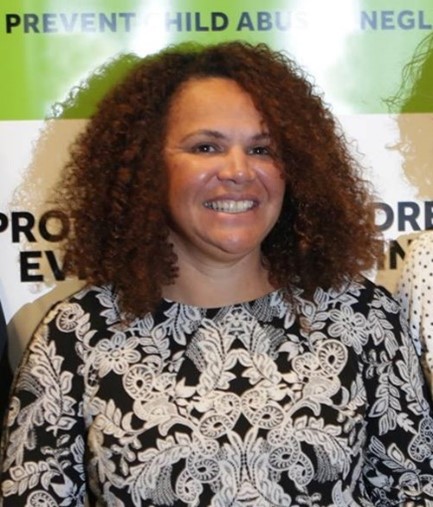
Sarah Decrea
Practice Manager Family Led Decision MakingSarah is a proud Torres Strait Islander woman living and working on Kaurna country. Being able to grow up strong in culture, Sarah is able to see the benefits of connecting back to culture for healing families from the adverse effects of colonisation and racism. As Practice Manager - Family Led Decision Making across the whole of Relationships Australia SA (RASA), she provides cultural information and guidance to the mainstream, culturally diverse and Aboriginal staff. Sarah’s work for the last 5 years as a therapeutic practitioner focused on attachment has led to Sarah creating an early intervention service working with families with infants aged under two years, who are involved with the child protection system. With the changes in SA laws on child protection, Sarah is influencing the way statutory services and community based, mainstream services including family led decision making practices into their work to reduce the number of Aboriginal infants and children entering out of home care.
Sarah has designed and developed a professional training program called ‘Working Better with Nunga Kids' and a Family Group conferencing restorative relationships training session that is delivered to community service organisations across the state, and she is the NAPCAN State Award winner for her work. Sarah’s heartfelt and powerful presentations at national and international conferences inspire pride in culture and describe how Aboriginal ‘old ways’ can be reclaimed, for the benefit of the whole of Australia.
Jack Buckskin
Founder and Managing Director, Kaaru Cultural Services Pty Ltd
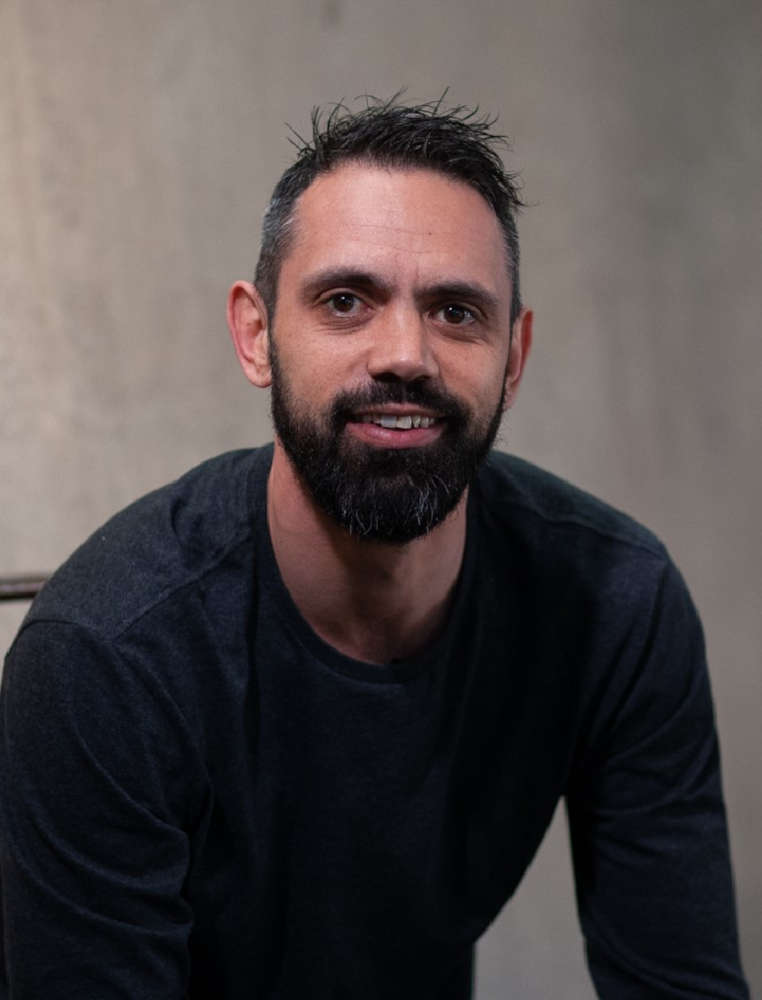
Jack Buckskin
Founder and Managing Director, Kaaru Cultural Services Pty LtdFounder and Managing Director of Kuma Kaaru Cultural Services Pty Ltd has spent his life relearning and teaching his mother tongue language, the once said extinct Kaurna language.
Jack has been lucky enough to travel the world promoting the works of language empowerment and endangered languages globally and how others can start their journey with strategies to put in place.
Coming from a very low income childhood, he has showed that resilience and hard work can pay off and any child can be who they want to be or what they want to do.
Rev Dr Rex Rigby
District Superintendent, QLD
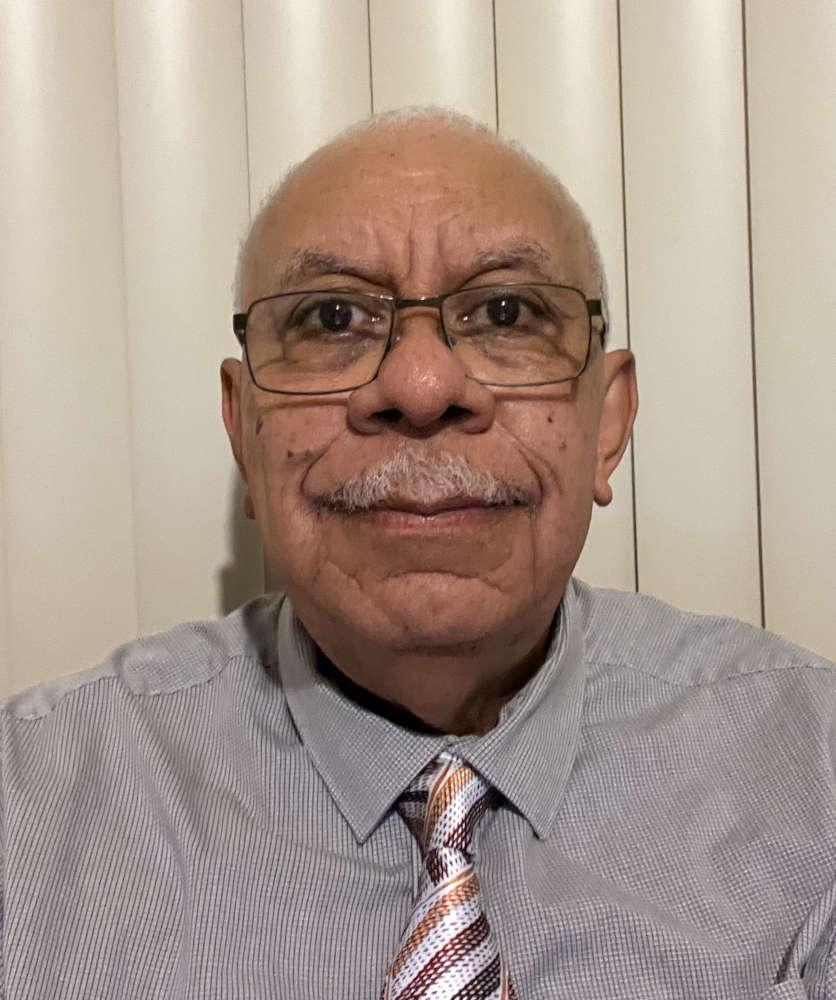
Rev Dr Rex Rigby
District Superintendent, QLD Rex is a Bigambul Man from southeast, QLD.He has been a Pastor for 36 years.
For 23 years, he served as a District Superintendent in QLD. In January 2012, he was elected National Superintendent, becoming the first Indigenous Australian to serve as the head of a major denomination. He has spoken around the country, including to indigenous communities and overseas. He has been married for 37 years to Lien, a Vietnamese refugee who escaped in 1979. His doctoral Thesis was Social Cohesion through the eyes of an Australian Indigenous Elder and it application in the intercultural church.
Professor Pat Dudgeon
Director of the Centre of Best Practice in Aboriginal and Torres Strait Islander Suicide Prevention at UWA
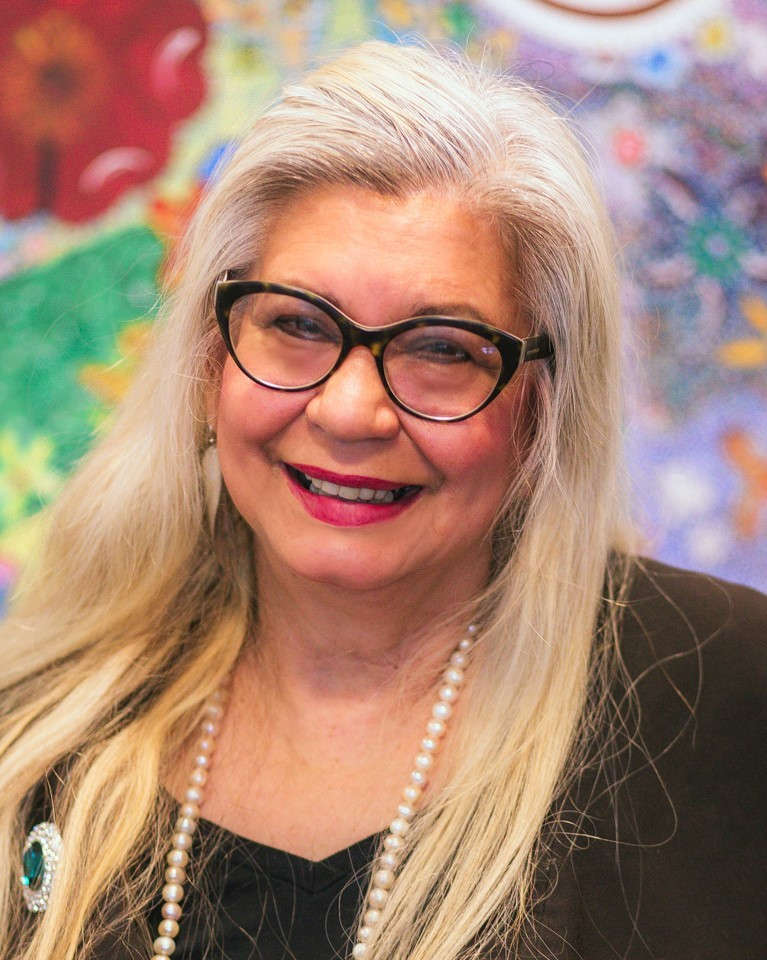
Professor Pat Dudgeon
Director of the Centre of Best Practice in Aboriginal and Torres Strait Islander Suicide Prevention at UWAPat Dudgeon is from the Bardi people in Western Australia. She is a psychologist and professor at the Poche Centre for Aboriginal Health and the School of Indigenous Studies at UWA. Her area of research includes Indigenous social and emotional wellbeing and suicide prevention.
She is the director of the Centre of Best Practice in Aboriginal and Torres Strait Islander Suicide Prevention at UWA. She is also the lead chief investigator of a national research project, Transforming Indigenous Mental Health and Wellbeing that aims to develop approaches to Indigenous mental health services that promote cultural values and strengths as well as empowering users. She has many publications in Indigenous mental health, in particular, the Working Together Aboriginal and Torres Strait Islander Mental Health and Wellbeing Principals and Practice 2014.
Lyndon Reilly
Senior Research Officer, University of Queensland and James Cook University, School of Australian Indigenous Studies
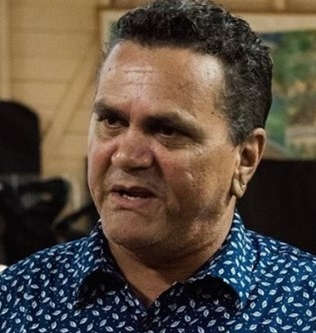
Lyndon Reilly
Senior Research Officer, University of Queensland and James Cook University, School of Australian Indigenous StudiesLyndon Reilly is a Badtjala (But-chulla) Mununjali man. Badtjala country encompasses K’gari (Fraser Island) and Hervey Bay Region, Queensland, Mununjali country includes the Beaudesert Region Southeast Queensland. Lyndon has lived a majority of his life in the North Central Coast of Queensland Township Mackay. In June 2006, Lyndon moved to Cairns and was employed for 5 years as a Senior Research Officer with the University of Queensland’s, and James Cook University, School of Australian Indigenous Studies.
Since 2012, Lyndon had been working full time for the Royal Flying Doctor Service (RFDS) Queensland Section as a Mental Health Promotion Officers. Currently, Lyndon is employed fulltime at the University of New South Wales (UNSW), Discipline of Psychiatry, working on a MRFF funded Research Project titled ‘Enabling Dad’s, Improving First Nations Adolescents Mental Health, across five Far North Queensland First Nations communities; Doomadgee, Kowanyama, Aurukun, Hopevale and Wujal Wujal.
Present in 2022
Strengthening Our Voice Through Millennia of Wisdom
Practical tips, strategies & case studies
The Conference Program Advisory Committee are seeking presentations of varying styles, including case study examples, emerging research, project or program analysis and learnings, as well as calls for action.
In 2022, we will be exploring the theme Strengthening Our Voice Through Millennia of Wisdom.
In-person & virtual presentation options are both available.
Every successful presenter will be offered a discounted in-person registration rate of $799 + GST.
Presenter applications are now closed.
Presentation Topics
- Indigenous governance, data sovereignty and self-determination/Tino Rangatiratanga
- Developments in Aboriginal Community Controlled Organisations
- Early childhood and school based preventive programs and interventions
- Suicide prevention and community impacts
- Strengths in cultural identity and security
- Traditional healing methods/Rongoā Māori and mobilising community natural helpers
- Power of Indigenous ways of respect, relationships, caring, view of life, living and passing
- Self-governance
- Family and kin-centred trauma-informed care
- Cultural involvement and participation
- Healing from trauma, discrimination, racism and stigma, grief, loss and stolen children
- Substance abuse and comorbidity
- Family violence
- Poor nutrition and exercise
- Child neglect, abuse and out-of-home care
- Isolation and disengagement with community
- Economic and social disadvantages including unemployment
- Poor physical health and chronic diseases
- Homelessness and inequality
- Developmental/cognitive impairments and disability
- Absence of family members
- Service equity for rural and remote communities and under serviced populations
- Causal pathways and collaborative approaches across all services
- Integration of clinical and non-clinical approaches
- Updates in government funding responses to service gaps and uncertainties
- Shaping assessment, diagnosis, care and management under culturally valid understandings, including the connection of physical health, mental health, spiritual needs and social and emotional wellbeing
- Developing a culturally, trauma sensitive and clinically competent workforce and skill set
- Clinical quality indicators to measure SEWB such as accessibility, appropriateness, capability, continuity of care, effectiveness and efficiency
- Facilitating continuity of care and information sharing between services
Presentation Styles
Present to the audience in a 20-30 minute speaking session, with incorporated time for questions.
Panel presentations bring together views from a group of presenters into a discussion of innovative ideas, current topics, and relevant issues. Each panel session will run for 80 minutes.
Keep the attention of attendees via engaging, hands-on learning experience in a 90 minute workshop.
20×20 is a simple presentation format where you show 20 images, each for 20 seconds. The images advance automatically and you talk along to the images. Each presenter has approx. 7 minutes to present, with 20 accompanying imagery slides that automatically progress.
Visually showcase your research or services via a printed poster, displayed in the conference exhibition area.
Important Dates
Presenter applications close: Friday 10 June 2022
Successful presenters notified: Thursday 23 June 2022
Acceptances & registrations due: Thursday 30 June 2022
Program available: Tuesday 5 July 2022
Scholarship applications close: Friday 9 September 2022
Early bird pricing ends: Friday 9 September 2022
Conference dates: Monday 24 - Tuesday 25 October 2022
Panpapanpalya (Conference) Committee
Mr Nat Heath
Founder, TriMob & Director Moorditj Ways Consulting
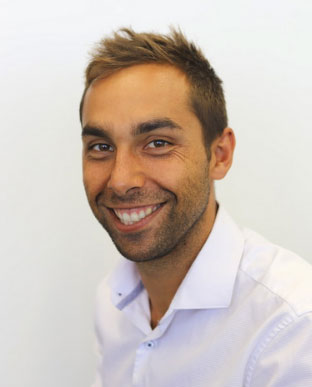
Mr Nat Heath
Founder, TriMob & Director Moorditj Ways ConsultingNat Heath is a proud Aboriginal man from the Martujarra and Noongar peoples. He completed a Bachelor of Social Science with a focus on Aboriginal Studies, Social Policy and Sociology in 2006 at the University of Newcastle.Nat has over 15 years experience working in Aboriginal education working in the early childhood education sector, primary and secondary education spaces and also in tertiary education in Aboriginal and non-for-profit organisations as well as government agencies. This experience has led Nat to understanding and seeing the impact trauma caused by colonisation and both past/current government policies has detrimentally impacted on First Nations mental, emotional and spiritual well-being.Nat currently is the Manager of the Aboriginal Engagement and Policy Team within the NSW Department of Education (Early Childhood and Education Directorate) and is a Board Director of The Indigenous Marathon Foundation (founded by Robert De Castella).
Mr Daryl Hobbs
Senior Psychologist, Winda-mara Aboriginal Corporation
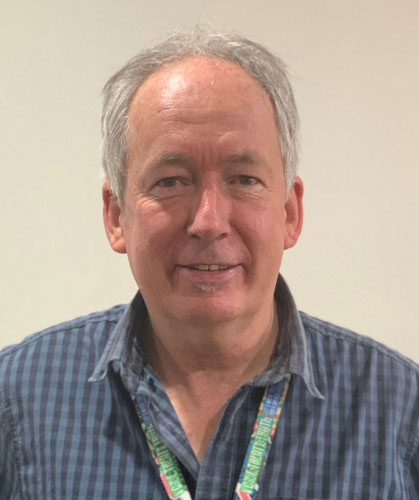
Mr Daryl Hobbs
Senior Psychologist, Winda-mara Aboriginal Corporation Daryl is a Senior Psychologist who has worked across 3 aboriginal communities of Gunditjmara Nation SW Victoria, for the past 7yrs. This followed a 17 year history of on-call work in both public psychiatry & the disability sector. He has qualified in Psychology, Human Biology, Family Therapy (Indigenous), Theology, and ….. Motorcycle Mechanic? Daryl has had extensive international training and membership in areas of complex trauma informed care, that is energised by lived experience. He currently has a lead clinical role in 2 multidisciplinary teams founded on Maslow’s hierarchy of need – derived from the Siksika (Blackfoot) way of life.Dr Lynne Russell
Senior Research Fellow, Māori Health, Victoria University of Wellington

Dr Lynne Russell
Senior Research Fellow, Māori Health, Victoria University of WellingtonDr Lynne Russell works as a Senior Research Fellow - Maori Health with the Health Services Research Centre (HSRC) at Victoria University of Wellington.
Much of Lynne's professional and academic work has centred around the Indigenous knowledge and healing practices used in recovery from trauma associated with mental distress, suicide loss and self-harm. She describes herself as an writer, activist and public speaker stirred by cultural resilience, social justice, Indigenous and LGBTI rights, and the amplification of voices more readily silenced in society.
Tanya McGregor
Director, Aboriginal Health Strategy, SA Health
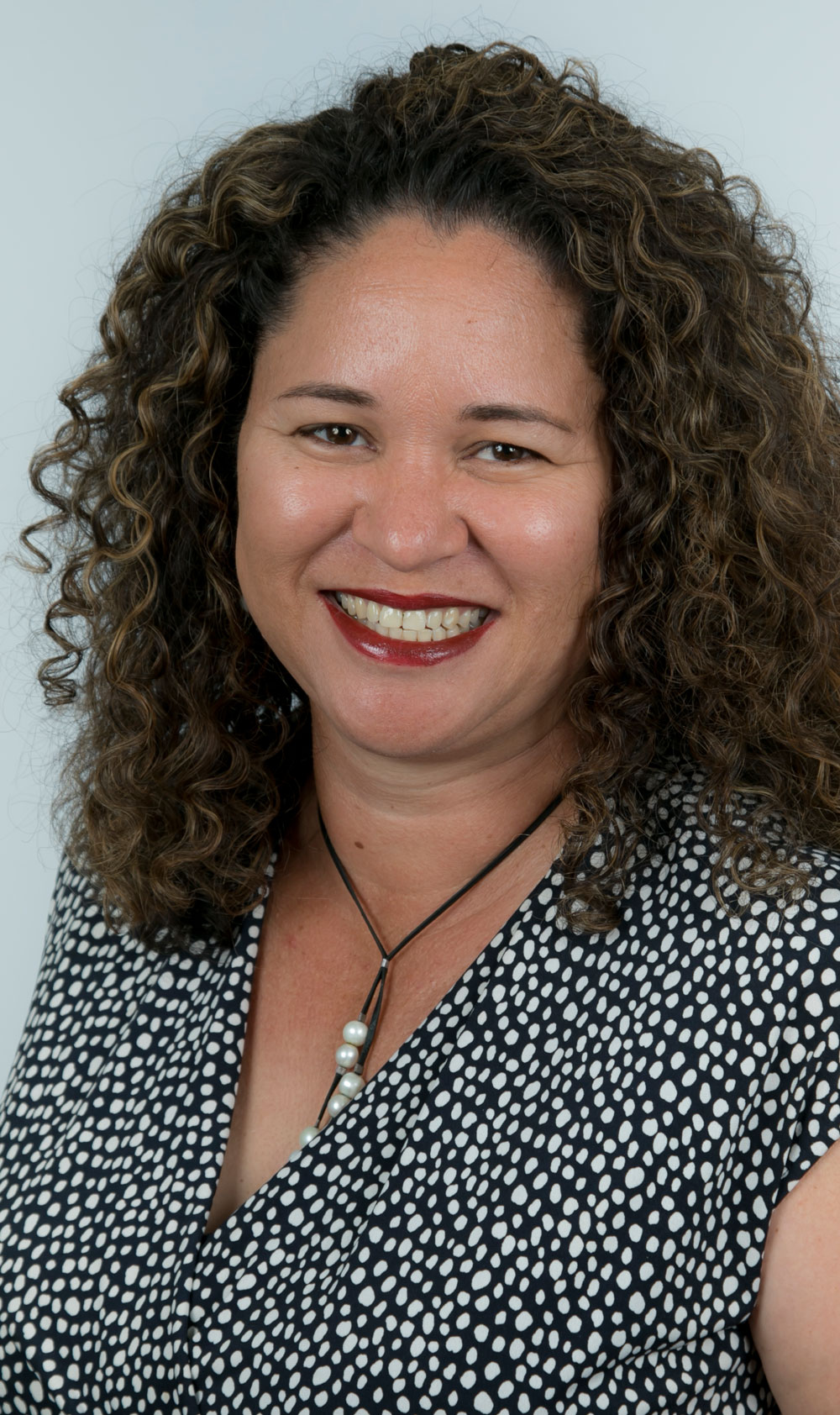
Tanya McGregor
Director, Aboriginal Health Strategy, SA HealthTanya is a proud Yaruwu woman who has lived and worked most of her life on the lands of the Larrakia people in the Northern Territory and now on Kaurna land in South Australia. She is currently the Director for Aboriginal Health in the Department for Health and Wellbeing, leading the reform of Aboriginal Health strategy including state funding and investment. During the COVID-19 pandemic, Tanya is also the Executive Lead responsible for COVID-19 response and preparedness for Aboriginal Communities in SA. The improvement in Aboriginal Health requires the strengths of Cultural and social determinant inputs, education, housing and employment all have a role to play.
Mrs Asha Bhat
Chief Executive Officer, Southern Aboriginal Corporation
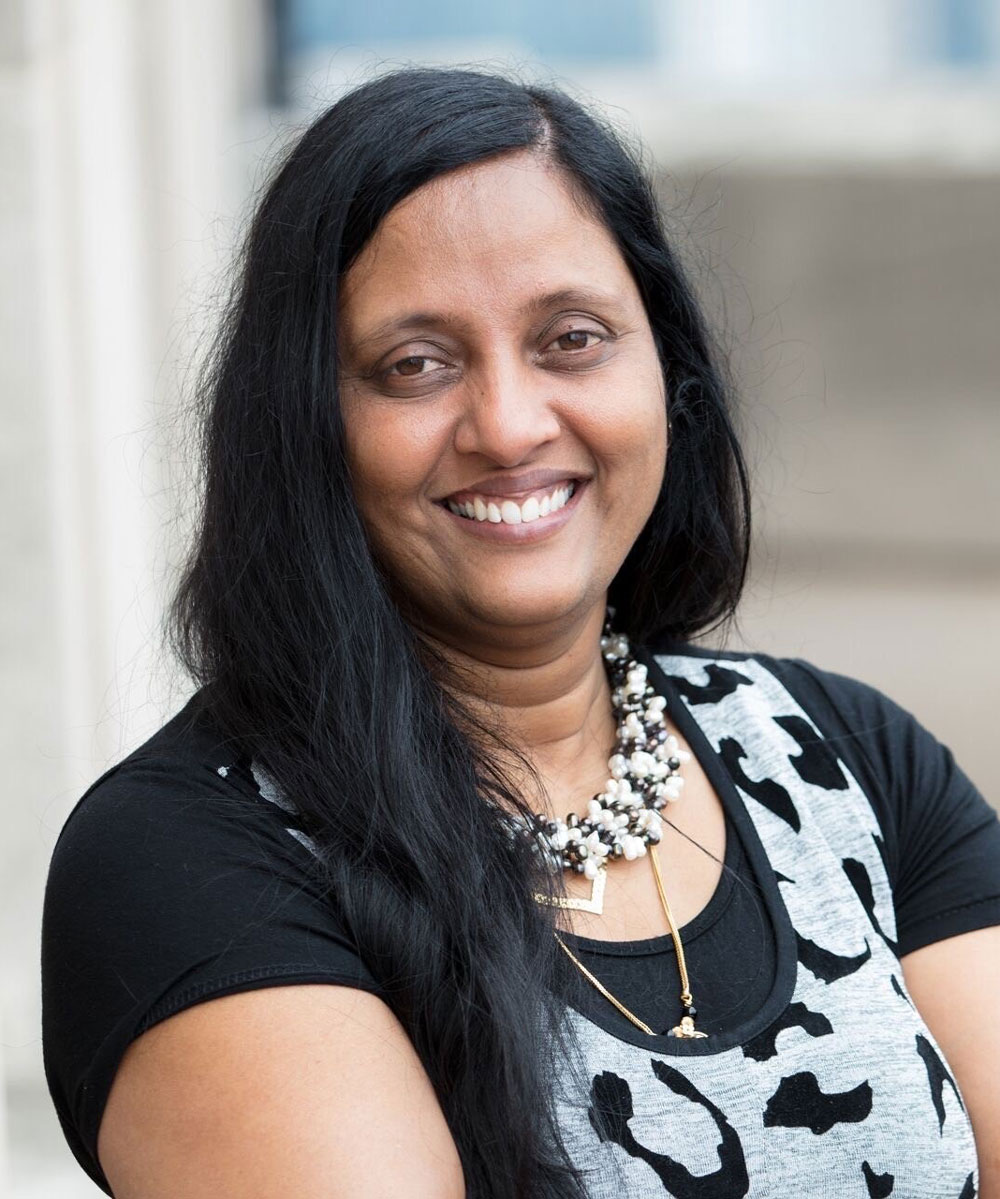
Mrs Asha Bhat
Chief Executive Officer, Southern Aboriginal CorporationLike the organisation she leads, Asha’s personal commitment to constantly develop better outcomes towards ‘Closing the Gap’ between Indigenous and non-Indigenous Australians in the areas of Economic Prosperity, Individual Prosperity, Community Prosperity and Environmental Prosperity, is second to none.
Asha spends every day ensuring that critical services are provided seamlessly to some of Australia’s most vulnerable communities.
Asha is now an Australian citizen; however, she was born in India. English is her third language. She has risen to the top of the organisation because she tirelessly invests her time and energy into helping to improve the culture and environment for everyone.
Asha advocates for change every day. She goes above and beyond to make her community - and, by extension, the world – a better place. She confronts unfairness. She constantly rolls up her sleeves and she uses her skills, wisdom and knowledge to help change the status quo and create a more equitable society.
Libby Cook-Black
Founder, Female Co.
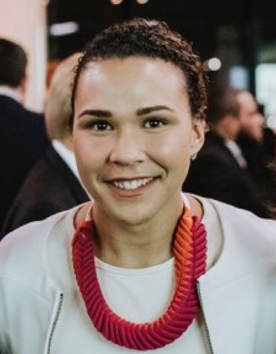
Libby Cook-Black
Founder, Female Co.Libby is a Torres Strait Islander woman, from the Samsep clan on the eastern island of the Torres Straits, Erub Island (Darnley Island). Libby has previously worked as the Senior Cultural Advisor for Queensland Corrective services advocating for culturally safe practice, and support for Aboriginal and Torres Strait Islander individuals, perpetrators, victims, families and community that come into contact with the criminal justice system. Recently moving into the Aurukun Justice Reintegration Program role that aims to reduce the crime within the community of Aurukun specifically.
Libby holds a degree in Justice, and is currently completing a post graduate certificate in business, public sector management. Libby is an Australian Indigenous Education Foundation Alumni, Former Australia Rugby League Jillaroo, Queensland Reds Rugby Seven, and recent participate of the Indigenous Marathon Foundation.
Mr Shane Mohor
CEO, Aboriginal Health Council of South Australia Ltd.
-web.jpg)
Mr Shane Mohor
CEO, Aboriginal Health Council of South Australia Ltd.Shane Mohor is currently the CEO of the Aboriginal Health Council of SA Ltd (AHCSA) and has been with the AHCSA since 2010. AHCSA is the peak body for the Aboriginal Community Controlled Health and Substance Misuse Services across South Australia. Shane has worked in Aboriginal health as a Registered Nurse and Senior Executive in Government, University and Non-Government Organisations for over 30 years in South Australia as well as interstate.
Shane has a passion for the Aboriginal Community Controlled Health sector and is strongly committed to improving the health and well-being status of Aboriginal people. He is very supportive of collaborative research projects that are Aboriginal led, owned and driven, and that will provide positive outcomes for the Aboriginal Community. He is also strongly committed to the advancement of employment for all Aboriginal people, in particular for Aboriginal Health Workers and Practitioners.
Shane is the Chairperson for Nunkuwarrin Yunti of SA Inc. and an inaugural Director for the Riverland Mallee Coorong Local Health Network Board. Shane is also a Member of the Speech Pathology Australia, Aboriginal Committee, and AHCSA’s Member on the South Australian Aboriginal Community Controlled Organisation Network
Ms Maraea Johns
Kaitohu Mātāmua Māori | Chief Advisor Māori, Mental Health and Wellbeing Commission
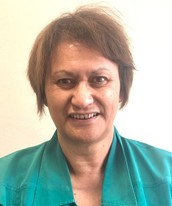
Ms Maraea Johns
Kaitohu Mātāmua Māori | Chief Advisor Māori, Mental Health and Wellbeing CommissionMaraea is Te Hiringa Mahara Director Māori, the role that partners with the Chief Executive and Leadership team to provide strategic and operational advice and direction that reflects the commitment of Te Hiringa Mahara to being grounded in Te Tiriti o Waitangi (Te Tiriti).
She leads the design and development of a Te Tiriti framework and implementation plan, building on Te Tiriti Position Statement to drive and inform all the functions of Te Hiringa Mahara. Authentic Te Tiriti partnerships with iwi, engaging effectively with Māori, increasing the capability of Te Hiringa Mahara and reviewing policies and procedures from a Te Tiriti lens are a key focus and driver of her work at Te Hiringa Mahara.
Maraea has a grounded understanding working with (and as a member of) whānau, hapū, iwi and Māori communities. Māori provider knowledge and experiences, past roles at programme, policy, and senior management levels in the Ministry of Health, DHBs, ACC and other sectors including education, justice, and defence, complement her role in Te Hiringa Mahara.
Holding strong interest both personal and professional in Māori mental health and wellbeing, te reo Māori, te ao Māori, mātauranga Māori and Te Tiriti, Maraea embraces all these ‘taonga tukuiho’ as lifelong pursuits of continuous learning for all.
Maraea holds a Diploma in Rehabilitation, BA double major in Psychology and Māori Studies, PGDip in Management Studies, Masters in Business Administration and is part-way through a Masters in Clinical Psychology.
Ms Donna Stanley
District Coordinator, Aboriginal Mental Health Drug & Alcohol, Western NSW Local Health District
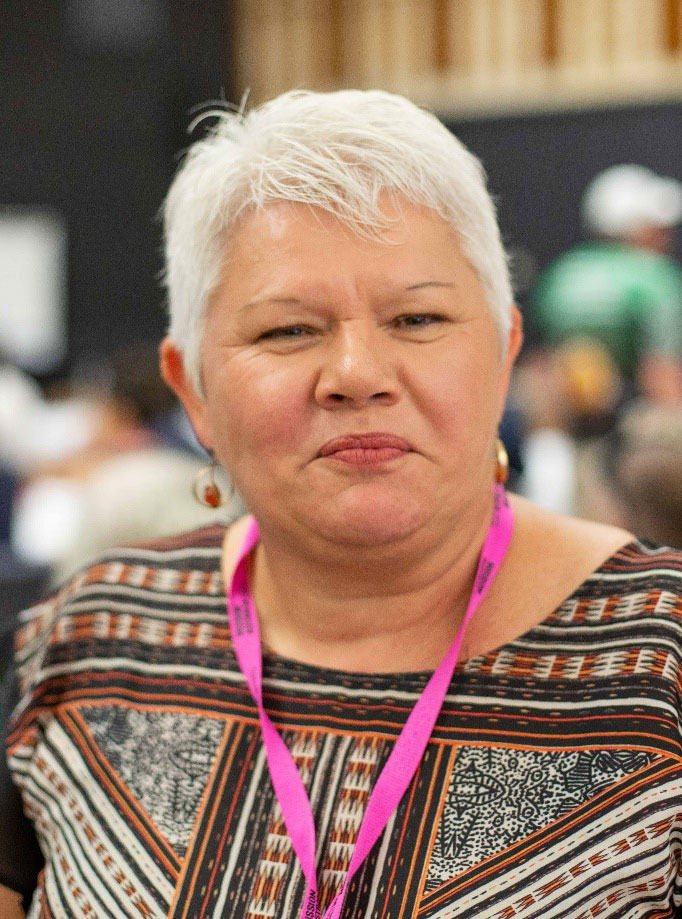
Ms Donna Stanley
District Coordinator, Aboriginal Mental Health Drug & Alcohol, Western NSW Local Health DistrictDonna Stanley is a Gunggari Umby from Mitchell in South Western QLD, Donna has been working in Aboriginal Health and predominately Aboriginal Mental Health for the past 28 years.
Donna is the vastly experienced District Coordinator for Aboriginal Mental Health Drug & Alcohol based at Bloomfield Hospital Orange NSW. Her role is district wide and covers a large area of Western NSW. Roles Donna has worked in have been across the clinical mental health services, community development and partnering with Aboriginal Community Controlled Health Services, strategic development of mental health services and policy development.
In 2019 Donna was contracted by the NSW Auditor General’s Office to assist in being a cultural and knowledge expert on a performance audit of NSW Health and the way services are planned and delivered to Aboriginal people with mental health and drug and alcohol problems. The Audit produced a report with a series of recommendations including the review and launch of the NSW Aboriginal Mental Health and Wellbeing Strategy 2020 -2025.
Donna was one of seven finalists for the Australian Mental Health Prize in 2019.
Parry Agius
Managing Director, Linking Futures
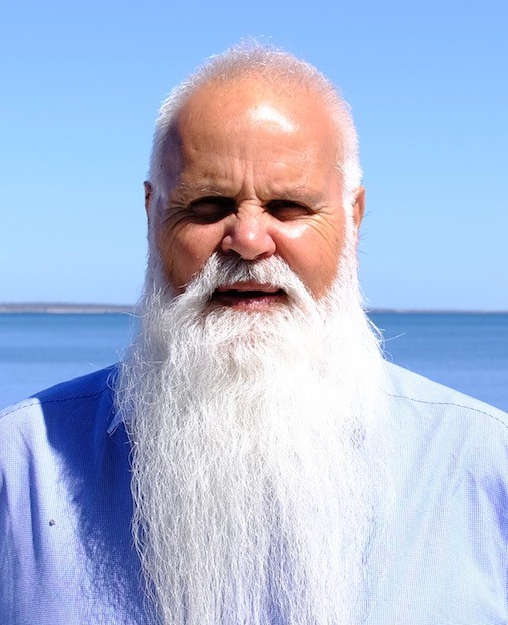
Parry Agius
Managing Director, Linking FuturesVisionary, energetic, ethical, committed, genuine and people-focused leader, facilitator and strategic advisor dedicated to achieving outstanding economic, cultural and social benefits for all Australians; value open dialogue and acts as a conduit between the community, government and other key stakeholders; thrives on challenges and enjoys working in diverse portfolios, multidisciplinary and cross-cultural settings.
Leshay Chong
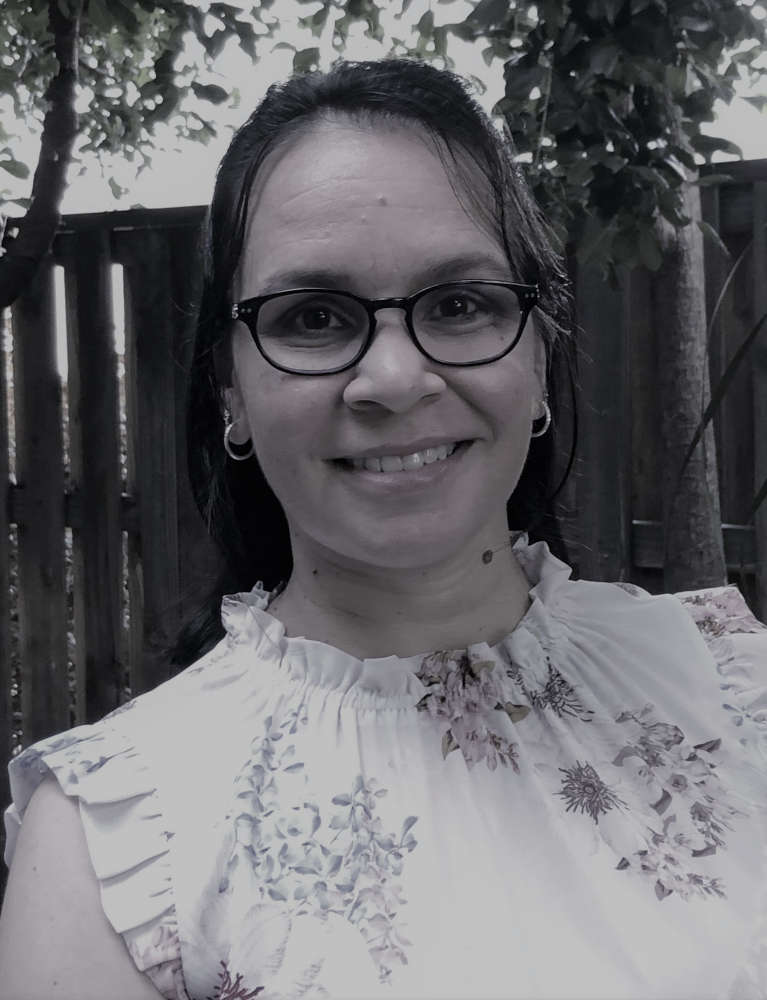
Leshay Chong
Leshay Chong is an Arrernte & Alyawarre woman born and raised in Mparntwe (Alice Springs), Central Australia. Fulfilling her passion to further the health and well-being of her people, Leshay has spent much of her working career in leadership roles within the Aboriginal community control sector in areas of health, social support, education and research. Here roles have included Manager of Congress Alukura (‘womens camp’, maternity and womens health care service), Manager of Early Childhood Youth and Family Services with the Tangentyere Council, Deputy CEO of Central Australian Aboriginal Congress. Board member with Centrecorp Aboriginal investment Corporation, and currently Regional Manager of Social Health with the Institute for Urban Indigenous Health – all underpinned by a strong focus on community empowerment, family and community health and wellbeing, cultural integral engagement and self-determination for individuals and families.Tahnee Sutton
Project Lead for SA Health’s Investment into Closing the Gap - Mental Health
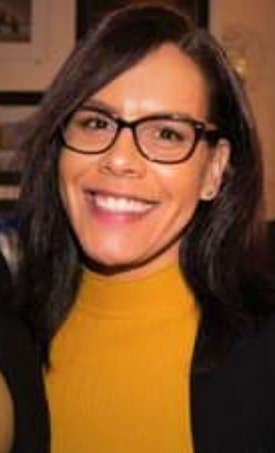
Tahnee Sutton
Project Lead for SA Health’s Investment into Closing the Gap - Mental HealthTahnee is a proud Narungga, Arrernt, Ngarrindjeri woman, born and raised in Adelaide, South Australia.
Tahnee has previously worked as a Minister Liaison Officer, Aboriginal Procurement/Policy Officer and currently is the Project Lead for SA Health’s Investment into Closing the Gap - Mental Health.
Her strong interest in mental health/wellbeing has come from wanting to empower her community to address the continuing effect of intergenerational trauma and to live a life free of chronic disease and mental ill-health.
Partner With Us
Expand your network of First Nations Australian, Māori and Pasifika community leaders and key service
providers, while showcasing your products & services.
We can also create custom partnership packages designed to meet your business objectives.
Personalise your display and engage with conference attendees in a thriving exhibitor hall.
The perfect opportunity to raise your profile in a relaxed and open environment.
Draw people to you, and receive continual interaction with attendees throughout the conference.
Distribute your branded materials or flyers on the seats of attendees before each session begins.
Why Partner With Us?
Maximise Your Exposure
To an audience of experienced industry leaders
Grow Your Network
and develop relationships with key sector decision makers
Build Relationships
and develop partnerships with key sector representatives
Showcase Your Products
innovations, new products and services to an ideal audience
Please enter your details below and a member of the partnerships team will be in touch with you shortly.
Sponsors
Venue & Accommodation
Venue
Adelaide Oval
War Memorial Drive
North Adelaide SA 5066
The William Magarey Room, Adelaide Oval’s flagship event space, is located in the Riverbank Stand, Level 3.
Accommodation
Oval Hotel, Adelaide
King William Road, North Adelaide SA 5066
ovalhotel.com.au
A destination hotel at the heart of the city of Adelaide.
Set at the iconic Adelaide Oval, our unique address places you within minutes of the vibrant city centre, while enveloping you in the tranquillity of the surrounding parklands.
At Oval Hotel, the moment is yours.
Room Details
Parkland King - $269.00 per room, per night
Parkland King with breakfast for one - $294.00 per room, per night
Parkland King with breakfast for two - $319.00 per room, per night
Accommodation can be booked during the registration process. If you have any questions, please use the contact form below.
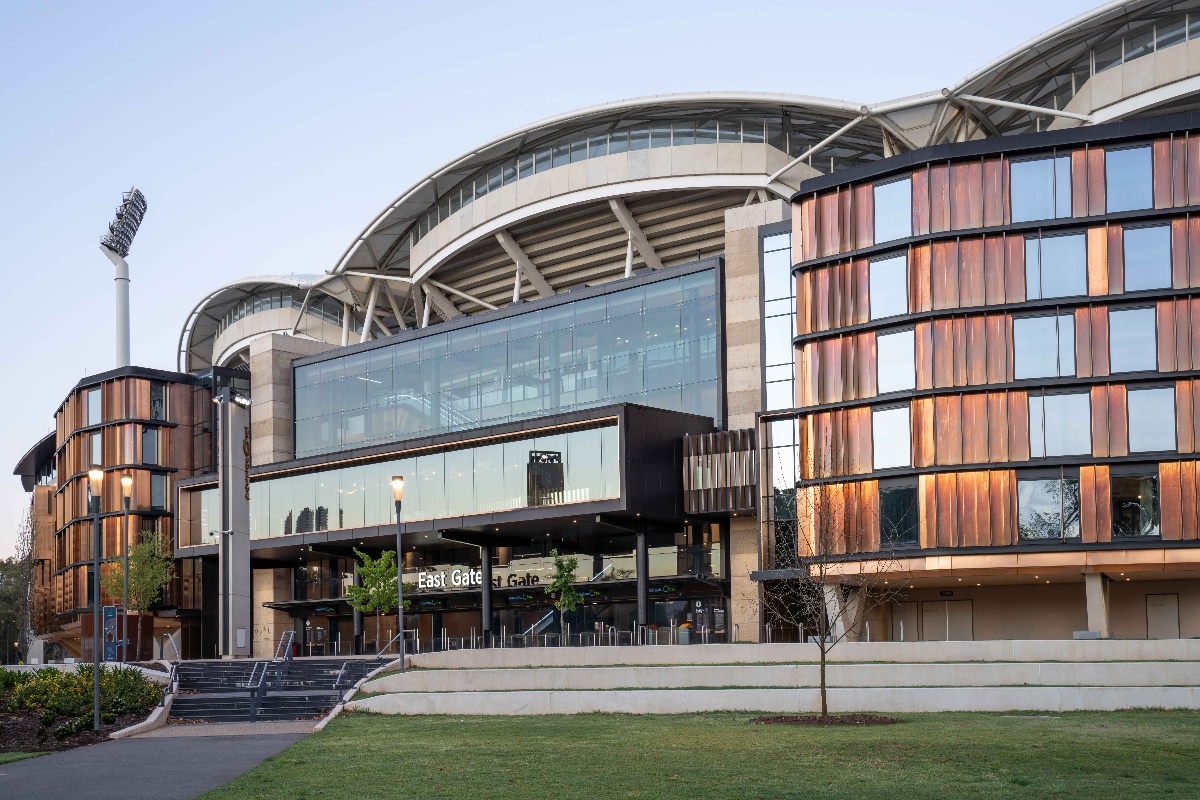
Networking Function
Date: 24 October 2022
Time: 5pm - 6pm
Location: Adelaide Oval
Cost: Included in your delegate registration. Additional tickets available for purchase throughout registration process.
Catering: Drinks and canapes will be provided
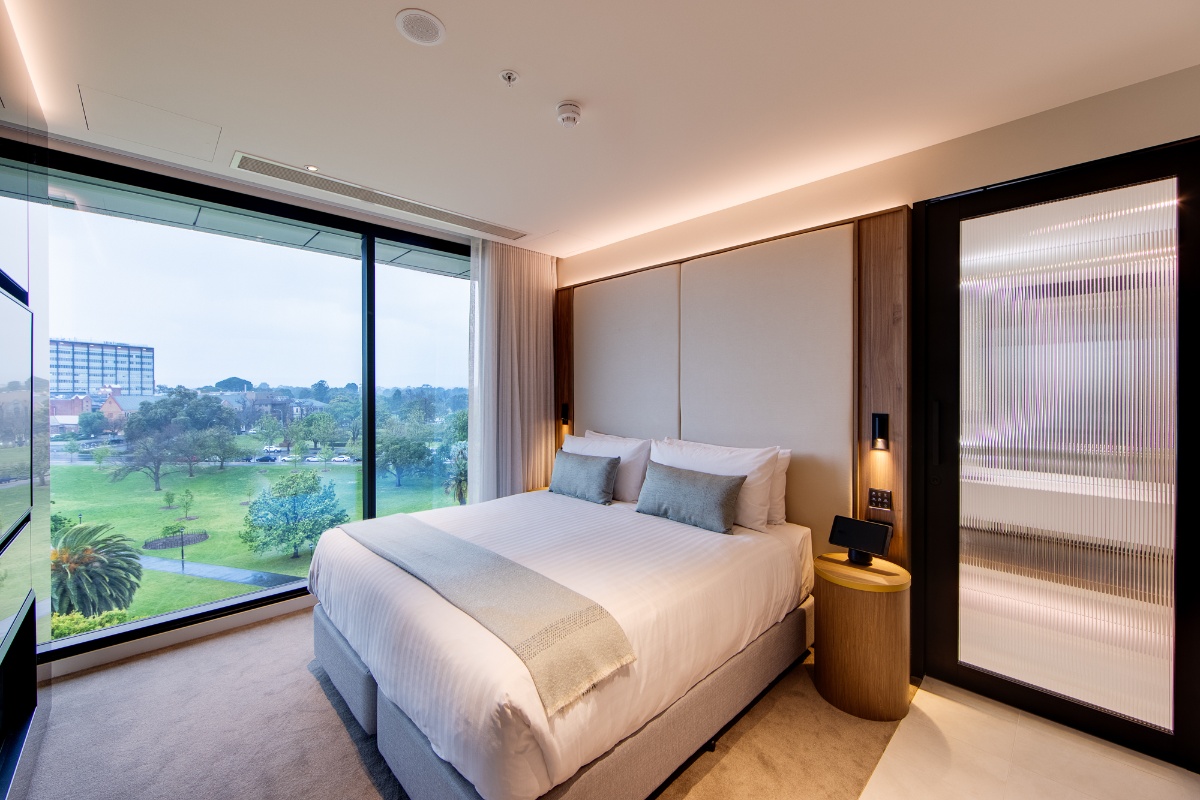
Registration Options
Virtual
2 DAY PROGRAM
$499 + GST
Standard Rate
- Live streaming of all keynote presenters
- Live streaming of all sessions in the main speaker room over two day conference period
- Virtual presentations
- Complete online access to audio and visual presentations for 30 days*
- Over 10 hours towards CPD points
- Your personalised certificate of attendance
*Access to all audio and visual presentations will be made available 5 business days after the conference has taken place, and will expire 30 days after access has been granted. Options to extend access will also be made available after 30 days.
Please fill in your details below to begin your registration.
In-Person
2 DAY PROGRAM
$959 + GST
Standard Rate
- All keynote presentations
- All concurrent presentations
- Discounted accommodation rates
- Access to conference app
- 5 star conference catering package
- Access to exclusive networking functions
- Complete online access to audio and visual presentations for 30 days post-event
- Printed conference materials
- Over 10 hours towards CPD points
- Your personalised certificate of attendance
- Exposure for your organisation
- Plus, chances to win great prizes!
Please fill in your details below to begin your registration.
In-Person Group of 3
2 DAY PROGRAM
$799 + GST
Price is per person.
minimum group of three (3).
- All keynote presentations
- All concurrent presentations
- Discounted accommodation rates
- Access to conference app
- 5 star conference catering package
- Access to exclusive networking functions
- Complete online access to audio and visual presentations for 30 days post-event
- Printed conference materials
- Over 10 hours towards CPD points
- Your personalised certificate of attendance
- Exposure for your organisation
- Plus, chances to win great prizes!
Please fill in your details below to begin your registration.


Here’s what some of the 2021 IWC delegates had to say:
“I have loved attending my first IWC2021. It has given so much encouragement and allowed me to engage and yarn with mob from Adelaide across to Perth up to Cairns. Listening to the young people from WA, was very encouraging and inspiring.”
“Confronting, inspiring, emotional, empowering and courageous.”
“I would recommend this very informative Indigenous Wellbeing Conference to anyone who appreciates and strive to improve lives and outcomes for our Indigenous mob of the Land.”
“Am really pleased to have been lucky enough to attend in person and become aware of some amazing people and work.”
”I gained so much in attending. This conference allowed one to feel connected and inspired to keep doing what we are passionate about: working with our people and educating mainstream service providers and holding them accountable”
“A significant contribution to the wellbeing of First Nations Peoples. The conference created a safe space for raising important issues and topics that need to be aired.”
Contact Us
Acknowledgement
Niina Marni, Kia Ora, Talofa Lava.
We welcome all our First Nation’s people and pay respects to them and their elders past, present and emerging.
As this conference is being held on local Kaurna land for 2022, we have honoured their language throughout this website and look forward to highlighting some of their culture throughout the program. We are grateful for their hospitality and look forward to welcoming you and your cultural background so we can collectively celebrate First Nation’s social and emotional wellbeing.
We would also like to take this opportunity to warn you that the following content may contain images and voices of deceased persons.



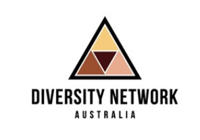
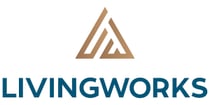


.jpg?width=150&height=78&name=Standard_NDIS_logo%20(002).jpg)



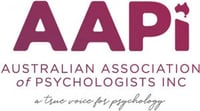
-1.png?width=900&height=300&name=Untitled%20design%20(37)-1.png)